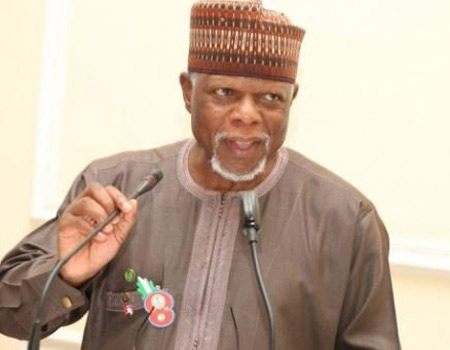Indication has emerged that the nations land borders would remain closed for a long time.
Comptroller General of Customs, Hameed Ali made the revelations on Wednesday before a joint Committee of Finance of the Senate and the House of Representatives.
Findings revealed that there has been a partial closure of the nations land borders for over two months.
The Senate at its plenary last week was divided over the federal government action. Some of the lawmakers expressed the opinion that the closure would be counterproductive in the long term as those engaged in legitimate businesses across the borders were at the received end of the federal government action.
But addressing the joint session of the Senate and the House of Representatives Committee on Finance , which invited heads of federal agencies for discussion on the Medium Term Expenditure Framework/ Fiscal Strategy Paper as prelude to the 2020 Budget, Colonel Ali justified the action of the federal government which he noted has jerked up the revenue base of government, significantly.
He said importers who have been using the ports of neighbouring West African states were now forced to move their good through the nation seaports.
ALSO READ: Minimum wage: We can’t guarantee industrial peace beyond 16 October ― NLC, TUC
He said:” When we closed the border my fear was that our revenue is going to drop. To be honest our revenue kept increasing. There was a day in September that we collected N9.2billion in one day. It has never happened before. This is after the closure of the border and since then, we have maintained an average of about N4.7billion to N5.8 billion on a daily basis which is far more than we used to collect.
“What we have discovered is that most of those cargoes that used to go to Benin (Republic), shipped to Benin, continue and then discharged and smuggled into Nigeria, now that we have closed the border they are forced to bring their goods to either Apapa or Tin Can Island and we have to collect duty on them.
“If that would continue, to us, it is a welcome situation. As a matter of fact, to answer your question, our revenue has not reduced. As a matter, it is increasing as a result of closing the border.”
The Customs Comptroller also restated claims that fuel consumption within the country has reduced drastically as a result of the closure.
“About 10.2million litres of fuel has now been cut down from what we have been assuming to have been consuming. This 10.2million litres of fuel is always going to across the border. The issue here is that there is an incentive because there is a price differential. And that is why our people keep pushing this fuel.
“If you go to Ilaro today, the filling stations that are there…in Idiroko, there are over 50 to 60 filling stations in one place and they are close to the border. And what we have discovered is that they bring in fuel in the afternoon and in the night they siphon it. They do that every day and this is why we keep saying we are consuming so many litres of fuel every day.”
The joint Committee expressed disappointment over the absence of Governor of the Central Bank, Godwin Emefiele and the Comptroller General, Immigration, Mohammed Babandede, as both shunned the invitation of the Joint Committee.
The joint Committee directed that they should appear before it today.
The CBN Governor neither sent a representative nor an apology letter to the joint committee’s sitting yesterday.
The Finance Minister, Zainab Ahmed, in her presentation before the committee yesterday explained the content of the MTEF/FSP document to the NASS joint committee on Finance.
WATCH TOP VIDEOS FROM NIGERIAN TRIBUNE TV
- Let’s Talk About SELF-AWARENESS
- Is Your Confidence Mistaken for Pride? Let’s talk about it
- Is Etiquette About Perfection…Or Just Not Being Rude?
- Top Psychologist Reveal 3 Signs You’re Struggling With Imposter Syndrome
- Do You Pick Up Work-Related Calls at Midnight or Never? Let’s Talk About Boundaries






